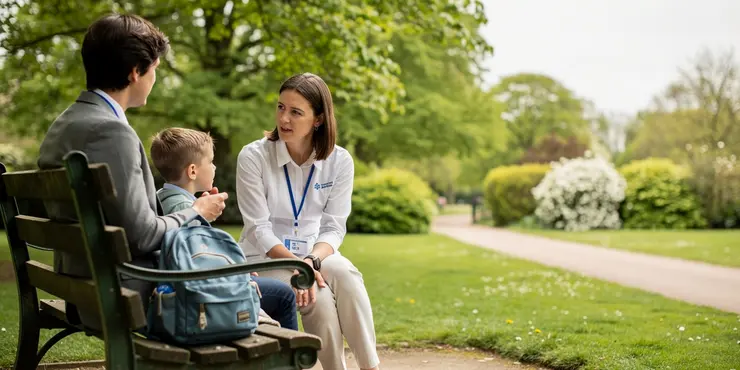
Find Help
More Items From Ergsy search
-
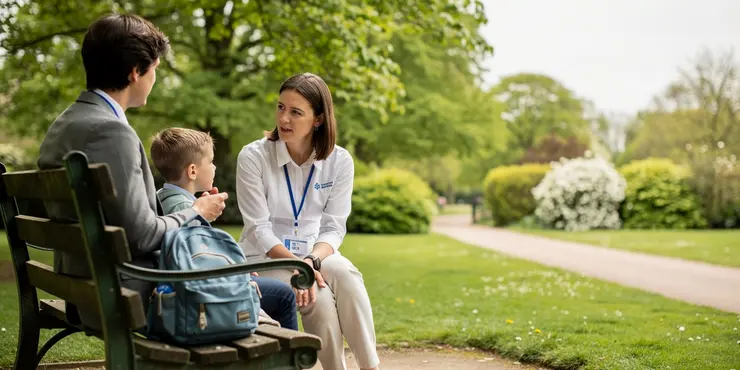
Understanding Mental Health in Children
Relevance: 100%
-
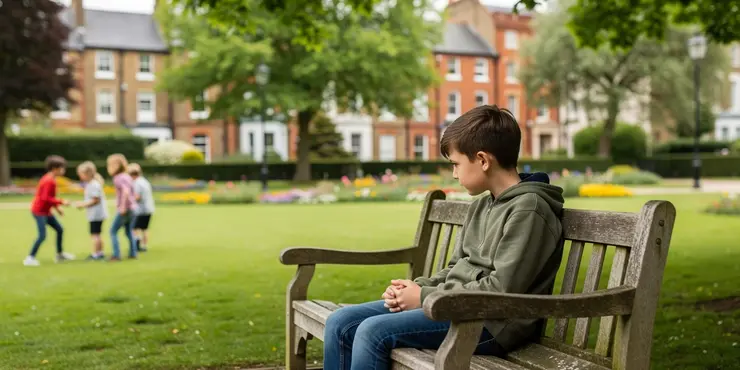
Navigating Mental Health Services for Children and Adolescents
Relevance: 90%
-
Has the social media ban been successful in improving children's mental health?
Relevance: 77%
-
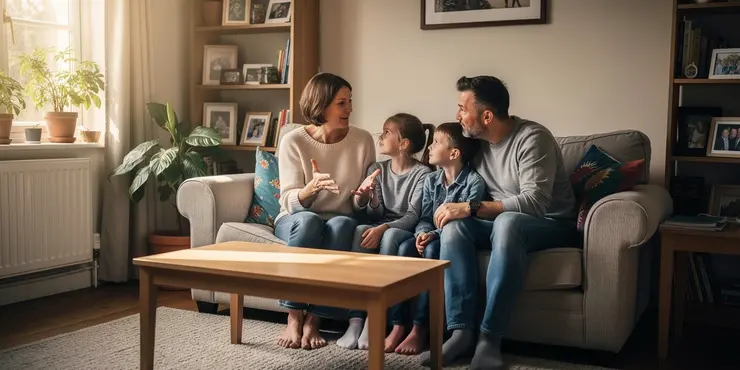
Mental Health Resources for Families
Relevance: 71%
-
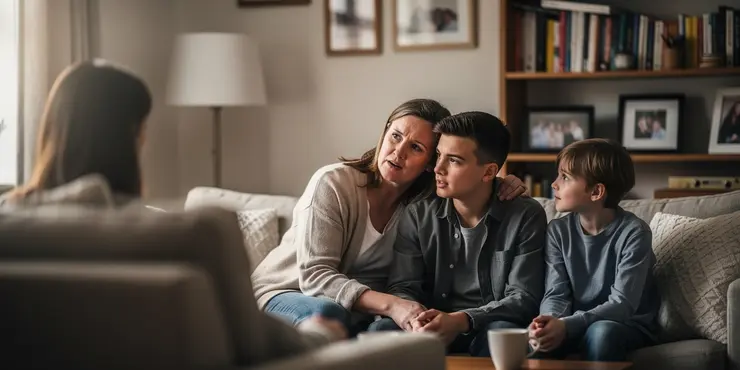
Advancements in Mental Health Resources for Families
Relevance: 69%
-
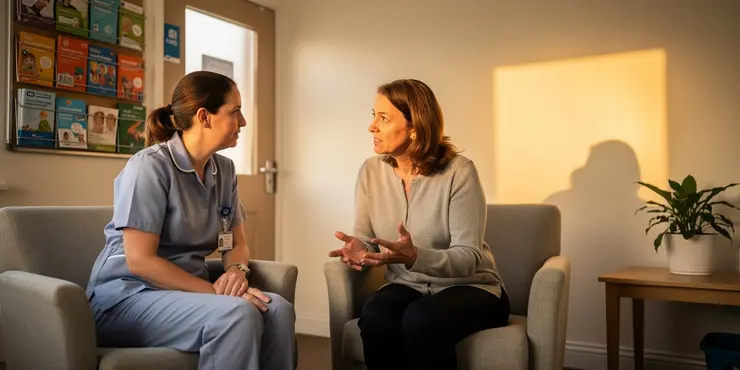
Mental Health Support Resources in the UK
Relevance: 67%
-
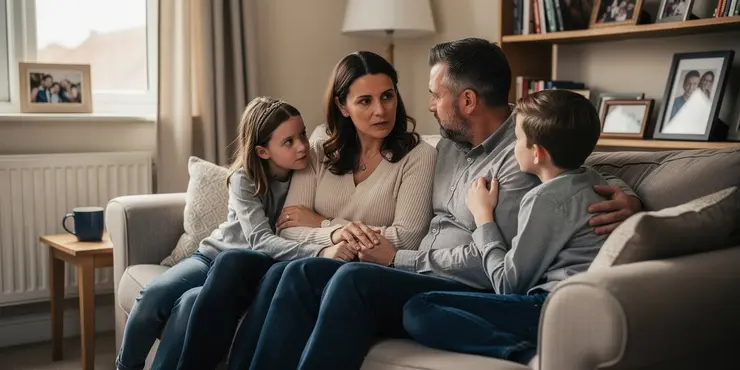
Mental Health Support Resources for Families
Relevance: 66%
-
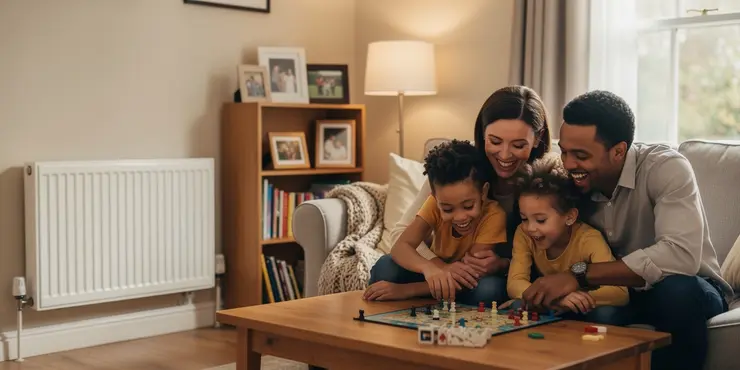
Mental Health Support for Families: Resources and Strategies
Relevance: 66%
-

Mental Health Support for Families: Resources and Helplines
Relevance: 66%
-
Mental Health Support for Families: Resources and Guidance
Relevance: 65%
-
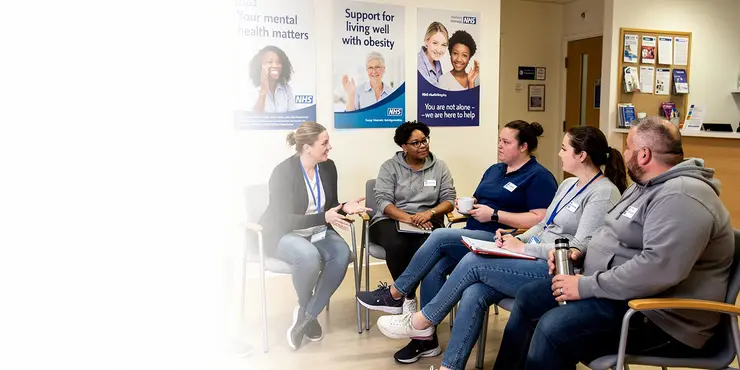
What is the impact of obesity on mental health?
Relevance: 64%
-
How does sugar impact mental health?
Relevance: 62%
-
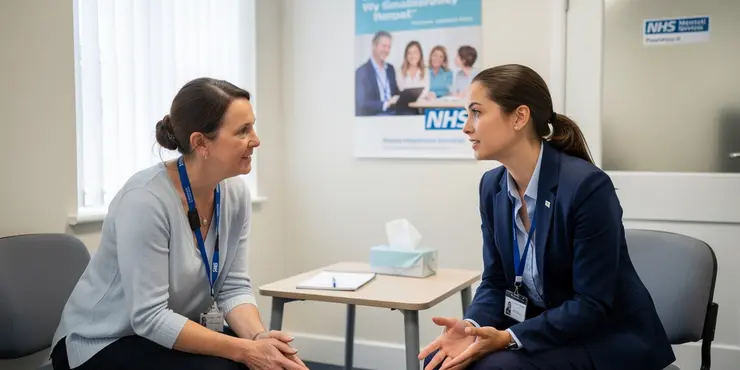
Mental Health Support Services in the UK
Relevance: 62%
-

Current Challenges in Youth Mental Health Services
Relevance: 62%
-

Tackling Youth Mental Health: Community Initiatives and Solutions
Relevance: 62%
-

Mental Health: Laura's Story | NHS
Relevance: 61%
-

Can gut health affect mental health as one ages?
Relevance: 61%
-

Accessing Mental Health Support Resources in the UK
Relevance: 60%
-

Support Services for Mental Health Amid Economic Uncertainty
Relevance: 60%
-
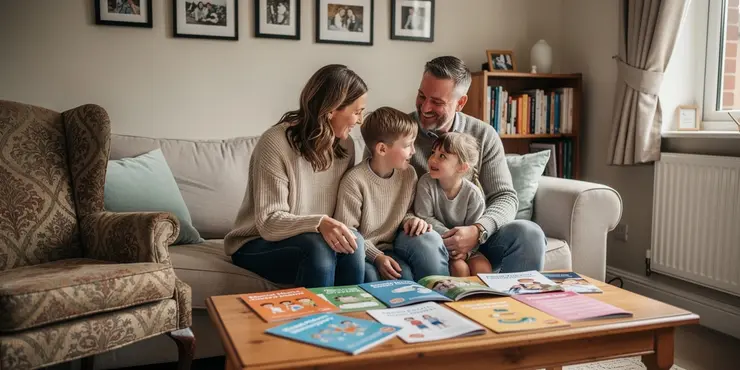
Mental Health Support for Families - Latest Resources and Guidance
Relevance: 59%
-
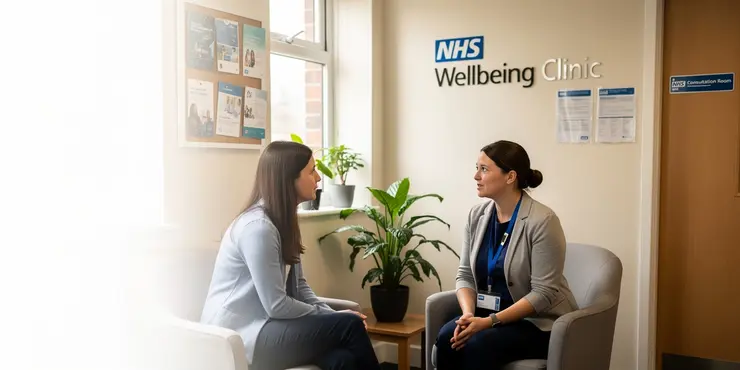
NHS Unveils Revolutionary Mental Health Support Initiative
Relevance: 59%
-

What mental health resources are available for seniors?
Relevance: 59%
-

Can concussions lead to mental health issues?
Relevance: 59%
-
Can mixed exercises improve mental health?
Relevance: 58%
-

Mental Health Services Struggle to Cope Amid Record Demand
Relevance: 58%
-

New Mental Health Strategy Launched to Address Youth Anxiety Epidemic
Relevance: 58%
-
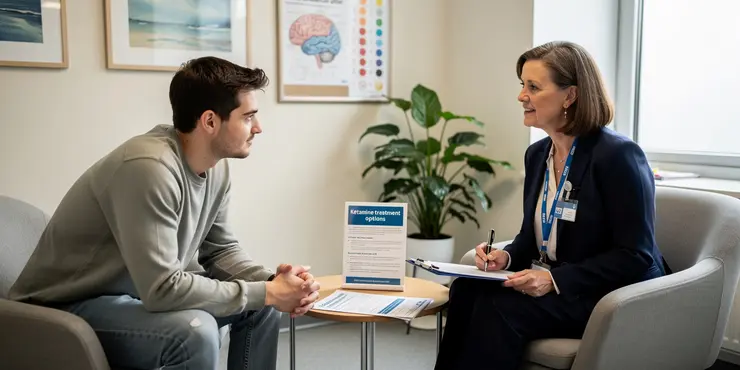
Can ketamine be prescribed for mental health conditions?
Relevance: 57%
-

What is the role of mental health assessments in indefinite sentences?
Relevance: 56%
-

Can relationship problems be resolved to improve mental health?
Relevance: 56%
-
How does binge drinking affect mental health?
Relevance: 55%
-

How does the loneliness epidemic impact mental health?
Relevance: 55%
-
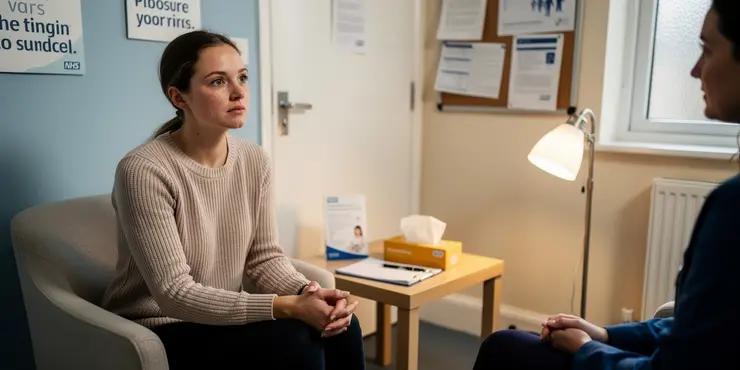
How do eating disorders affect mental health?
Relevance: 54%
-

Short Films About Mental Health - Trauma PTSD
Relevance: 54%
-
Can cortisol levels impact mood and mental health?
Relevance: 54%
-
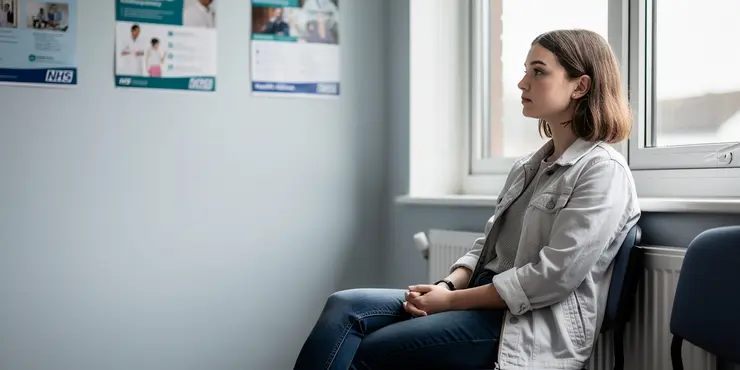
Short Films About Mental Health - Anxiety
Relevance: 54%
-

How does walking to work impact mental health?
Relevance: 54%
-
Can eating disorders occur with other mental health conditions?
Relevance: 53%
-

Mental Health Impact of Cost of Living Crisis and Support Resources
Relevance: 53%
-

Can primary care support workers access mental health support?
Relevance: 53%
-
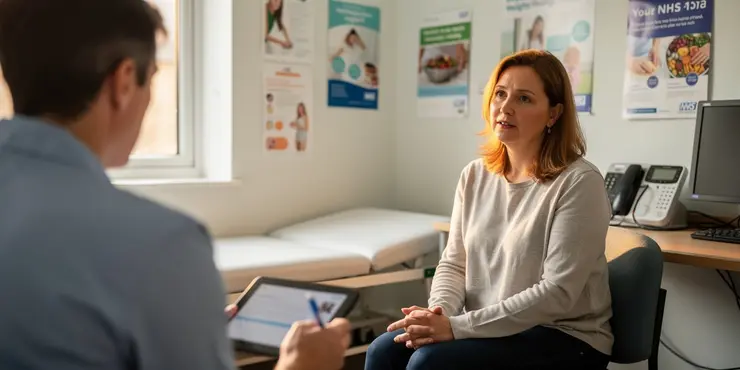
What impact can weight loss drugs have on mental health?
Relevance: 52%
Understanding Mental Health in Children
Introduction to Children's Mental Health
Mental health in children is a vital aspect of their overall well-being, influencing their emotional, psychological, and social development. It affects how they think, feel, and act, as well as how they handle stress, relate to others, and make choices. Understanding and supporting children's mental health is crucial for parents, educators, and healthcare professionals.
Common Mental Health Issues in Children
Children can experience a range of mental health issues, including anxiety, depression, attention-deficit/hyperactivity disorder (ADHD), and behavioural disorders. Anxiety and depression are among the most common, often manifesting as persistent sadness, irritability, or excessive worry. ADHD is characterised by inattention, hyperactivity, and impulsiveness. Early identification and intervention are key to managing these conditions effectively.
Signs and Symptoms to Watch For
Recognising the signs of mental health issues in children can be challenging, as they often vary by age and individual temperament. Common signs include changes in mood or behaviour, withdrawal from social activities, decline in academic performance, sleep disturbances, and physical complaints like headaches or stomachaches without a clear medical cause. It's important for caregivers to observe these changes and seek professional advice if concerns arise.
Support and Resources Available in the UK
In the United Kingdom, there are numerous resources available to support children's mental health. The NHS provides access to Child and Adolescent Mental Health Services (CAMHS), offering specialist treatment for a range of conditions. Additionally, organisations such as YoungMinds and Mind provide valuable information, support, and advocacy. Schools also play a crucial role in promoting mental well-being through educational programs and supportive environments.
Promoting Positive Mental Health
Fostering positive mental health involves creating a supportive and nurturing environment for children. Encouraging open communication, establishing routines, promoting healthy lifestyles, and ensuring a balance of activities can significantly contribute to a child's mental well-being. Additionally, teaching coping skills and resilience can help children manage stress and develop a strong sense of self-worth.
Conclusion
Understanding and addressing mental health in children is essential for their development and long-term well-being. By recognising the signs, seeking appropriate support, and promoting positive mental health practices, we can help children thrive and lead fulfilling lives. It is a collective responsibility to ensure that every child has the opportunity to achieve optimal mental health and their full potential.
Understanding Mental Health in Children
Introduction to Children's Mental Health
Children's mental health is very important. It affects how they feel, think, and act. It helps them handle stress, get along with others, and make choices. Parents, teachers, and doctors need to help children with their mental health.
Common Mental Health Issues in Children
Children can have mental health problems like anxiety, depression, ADHD, and behaviour issues. Anxiety and depression might look like being very sad, irritable, or worried. ADHD means having trouble paying attention, being very active, and acting without thinking. It is important to notice these problems early and get help.
Signs and Symptoms to Watch For
It can be hard to see if a child has a mental health problem because signs can be different. Watch for mood changes, not wanting to do activities, school work getting worse, trouble sleeping, or stomachaches without a reason. If you see these signs, talk to a doctor.
Support and Resources Available in the UK
There is help for children's mental health in the UK. The NHS has services called CAMHS for treatment. Organisations like YoungMinds and Mind offer help and information. Schools can also help by teaching about mental health and being supportive.
Promoting Positive Mental Health
To help children have good mental health, create a caring environment. Talk openly, have routines, encourage healthy habits, and balance activities. Teach them about coping and feeling good about themselves. This helps children deal with stress and feel confident.
Conclusion
Helping children with their mental health is very important. By knowing the signs, getting help, and encouraging good habits, we can help children grow and be happy. Everyone needs to ensure that children can be healthy and reach their best.
Frequently Asked Questions
What is mental health in children?
Mental health in children refers to their emotional and psychological well-being, which affects how they think, feel, and behave. Good mental health enables children to develop coping skills, build healthy relationships, and navigate life's challenges.
What are common mental health issues in children?
Common mental health issues in children include anxiety, depression, ADHD (Attention-Deficit/Hyperactivity Disorder), and behavioural disorders. Early identification and support are crucial for addressing these issues.
How can I identify if my child has a mental health problem?
Signs of mental health problems in children can include persistent sadness, withdrawal from activities, difficulties with concentration, excessive worry, and changes in eating or sleeping habits. If these signs persist, it's important to seek professional advice.
What causes mental health problems in children?
Mental health problems in children can be caused by a combination of factors, including genetics, family history, environmental stressors, trauma, and significant changes such as moving or parental divorce.
How can I support my child's mental health?
Support your child's mental health by maintaining open communication, encouraging healthy lifestyle habits, fostering a positive environment, and seeking professional help when necessary. Ensuring they feel heard and supported is key.
When should I seek professional help for my child's mental health?
Seek professional help if your child's mental health issues persist for a few weeks or are causing significant distress or impairment in their daily life. Consult a GP, who can refer you to specialist services if needed.
What treatments are available for children with mental health issues?
Treatments for children with mental health issues may include counselling, cognitive behavioural therapy (CBT), family therapy, and in some cases, medication. Treatment plans are tailored to each child's specific needs.
Can schools help with my child's mental health?
Yes, schools can play a significant role in supporting a child's mental health through counselling services, mental health education, and providing a supportive and understanding environment. Communicating with school staff about your child's needs is important.
What role do parents play in their child's mental health?
Parents play a crucial role in their child's mental health by providing a stable and supportive home environment, fostering open communication, being attentive to their child's emotional needs, and seeking professional help when necessary.
Are there any online resources in the UK for children’s mental health?
Yes, there are several online resources in the UK, such as Young Minds, NSPCC, Childline, and NHS resources, which provide valuable information, advice, and support for children and their families regarding mental health.
How can I talk to my child about mental health?
Talk to your child about mental health by creating a safe and non-judgmental space, using age-appropriate language, actively listening, and reassuring them that it's okay to have and express their feelings. Normalize the conversation about mental health.
Can diet and exercise affect my child's mental health?
Yes, a balanced diet and regular exercise can positively impact your child's mental health by improving mood, reducing anxiety, and boosting overall well-being. Encourage healthy eating and physical activity as part of their routine.
What impact does social media have on children's mental health?
Social media can have both positive and negative impacts on children's mental health. It can provide a sense of community and support but can also lead to issues like cyberbullying, anxiety, and unrealistic comparisons. Monitoring and setting limits on social media use is important.
How can I teach my child coping skills?
Teach your child coping skills by modelling positive behaviours, encouraging problem-solving, promoting mindfulness and relaxation techniques, and helping them develop resilience through supportive communication and positive reinforcement.
Is mental health education part of the UK school curriculum?
Mental health education is becoming increasingly integrated into the UK school curriculum. Schools are encouraged to teach about mental health and well-being, helping students to develop an understanding of mental health issues and how to seek help.
What is mental health in children?
Mental health means how we feel inside our heads. For children, it is about feeling happy and okay. It is also about how we deal with life's ups and downs. Good mental health helps us do well at home, in school, and with friends.
If a child feels sad, worried, or angry a lot, it might be hard for them to enjoy life. Sometimes, talking to a grown-up can help. Grown-ups like parents, teachers, or doctors can support children when they feel this way.
Here are some ways to feel better:
- Talk about feelings. Sharing how we feel can help.
- Do fun activities. Playing, drawing, or reading can make us happy.
- Take deep breaths to feel calm.
Remember, it is okay to ask for help if you feel upset or worried.
Mental health in children is about their feelings and how they think. It affects how they act. When kids have good mental health, they can learn ways to handle tough times, make friends, and deal with problems in life.
What are common mental health issues in children?
Children might have feelings or problems in their minds too. Here are some common ones:
- Feeling very worried: This is when a child feels scared or nervous a lot.
- Feeling very sad: This is when a child feels unhappy or cries often.
- Feeling angry: This is when a child gets mad easily and has trouble calming down.
- Hard to pay attention: This is when a child finds it difficult to focus or sit still.
If a child has these feelings, there are ways to help:
- Talk to someone: Encourage the child to talk to a parent, teacher, or counselor about their feelings.
- Use calming techniques: Teach the child to take deep breaths or do a fun activity to relax.
- Draw or write: Let the child express their feelings through drawing or writing.
Kids can have mental health problems like feeling very worried, feeling very sad, finding it hard to pay attention, or having trouble behaving well. It's important to know about these problems early and help the kids feel better.
How can I tell if my child is feeling unwell in their mind?
Your child might have a mental health problem if they:
- Feel very sad or worried often
- Have trouble sleeping or eating
- Get angry a lot
- Avoid friends and family
- Have difficulty in school
Think about:
- Talking to your child and asking how they feel
- Speaking to your child's doctor or teacher
- Looking for support from child mental health services
Tools that may help:
- Drawing to express feelings
- Relaxing activities like deep breathing
- Reading simple books about feelings
There are some signs that show a child might need help with their feelings. These signs can be:
- Feeling sad all the time
- Not wanting to play or do fun things
- Finding it hard to focus
- Worrying too much
- Changes in how they eat or sleep
If you see these signs for a long time, it's a good idea to talk to a doctor or a person who can help.
What makes children feel mentally unwell?
Children can feel mentally unwell for different reasons.
Here are some things that might make children feel this way:
- Feeling sad or worried a lot.
- Being bullied at school.
- Having problems at home.
- When someone they love is sick or dies.
- If they are hurt or treated badly.
It's important to talk to a trusted adult if a child feels unwell in their mind.
Using tools like drawing or writing can help children express their feelings.
Children can have mental health problems for many reasons. It can be because of their genes or family history. Stressful things around them, bad experiences, or big changes like moving to a new place or parents splitting up can also be reasons.
How can I help my child's feelings?
Help your child feel good by talking to them, helping them stay healthy, creating a happy home, and getting help from a doctor if you need to. It's important to make sure they feel listened to and supported.
When do I ask for help for my child's feelings?
If you think your child is sad or worried a lot, it might be time to get help. Here are some signs:
- Your child is sad or angry often.
- They do not want to play or do fun things.
- Your child is having trouble at school.
- They have changes in sleep or eating.
- Your child says they feel scared or worried all the time.
If you see these signs, you can talk to a doctor or a counselor. They can help you and your child. It is okay to ask for help.
You can also use books or apps with pictures to help your child talk about their feelings.
If your child feels upset or can't do normal things for a few weeks, it's important to get help. Talk to a doctor. They can help you find the right support.
What can help children with mental health problems?
Here are some things that might help:
- Talking to a doctor or nurse.
- Seeing a therapist who talks and listens.
- Going to a special group to talk with other kids.
- Using medicines that a doctor says are okay.
- Doing fun activities like drawing, sports, or games.
Getting help from people at home or school is important too.
Remember, it’s okay to ask for help!
If a child has problems with their feelings or thoughts, they can get help. This help might include talking to a counsellor, learning new ways to think and behave using CBT (Cognitive Behavioural Therapy), sharing feelings with family in family therapy, and sometimes taking medicine. Every child gets a special plan made just for them.
Can schools help with my child's feelings?
Schools can help if your child feels sad, worried, or upset. Teachers and school counselors are there to listen and help. They can talk to your child and find ways to make them feel better.
Here are some ways schools can help:
- Provide a safe place to talk about feelings.
- Teach children how to handle their emotions.
- Offer counseling sessions.
- Work with parents to support the child.
If you are worried about your child, talk to the school staff. They can give ideas and help find more support if needed.
Yes, schools can help a lot with a child's feelings and mental health. They can do this by having people to talk to, teaching about mental health, and creating a caring and understanding place. It's important to talk to school staff about what your child needs.
How do parents help with their child's mental health?
Parents are very important in helping their child's mind stay healthy. They can do this by making a safe and loving home, talking with their child, listening to how their child feels, and getting help from a doctor or counselor if needed.
Can I find help online in the UK for children's mental health?
Yes, there are helpful websites for children's mental health in the UK.
Try these:
- YoungMinds: They have tips and advice.
- Childline: You can talk to someone or chat online.
- MindEd: They have learning resources for adults.
You can talk to a grown-up if you need more help.
Yes, there are lots of websites in the UK that can help with mental health. Some good ones are Young Minds, NSPCC, Childline, and NHS. They give good tips, help, and support for kids and families.
How can I talk to my child about mental health?
How do I talk to my child about how they feel?
Talking about feelings can be hard. Here are some easy steps to help:
- Find a quiet place to chat.
- Ask your child how they feel.
- Listen carefully. Let them tell you what is on their mind.
- Tell them it's okay to have their feelings.
- Use simple words they can understand.
Helpful tools or tips:
- Use books or storytime to talk about feelings.
- You can draw pictures together about how you feel.
- Use toys to act out feelings, like happy or sad.
- Keep showing your child love and support.
Chat with your child about feelings. Make sure they feel safe and not judged. Use simple words they understand. Listen well. Let them know it's okay to have feelings and talk about them. It's normal to talk about how we feel.
Can food and exercise change how my child feels?
What your child eats and how much they move can change how they feel. Eating good food and playing can help them feel happy and strong.
Here are some tips to help:
- Give your child lots of fruits and vegetables.
- Encourage them to play outside and run around.
- Make sure they get enough sleep at night.
If you need help, you can talk to a doctor or a teacher. They can give you more information.
Yes, eating healthy food and doing exercise can help your child feel better. It can make their mood better, help them worry less, and make them feel happier. Try to make healthy eating and exercise a regular part of their day.
How does social media affect how children feel?
Social media can be good and bad for kids' feelings. It can help them feel like they belong and have support. But it can also cause problems like online bullying, worry, and unfair comparisons. It's good to watch how much kids use social media and set rules.
How can I help my child learn to feel better when they are upset?
Show your child how to handle tough times by:
- Showing them good ways to act.
- Helping them figure out how to fix problems.
- Teaching them to be calm and relaxed.
- Talking with them to help them be strong inside.
- Saying nice things when they do well.
Do kids in UK schools learn about mental health?
Yes, children in UK schools learn about mental health. This topic is part of their lessons or subjects. They learn how to talk about feelings and understand emotions.
Supportive tools like pictures, stories, and videos can help kids learn better. Teachers might use these to make learning more fun and easy.
Mental health is part of school lessons in the UK. Schools teach kids about mental health and feeling good. They help kids learn about mental health problems and how to get help.
Useful Links
This website offers general information and is not a substitute for professional advice.
Always seek guidance from qualified professionals.
If you have any medical concerns or need urgent help, contact a healthcare professional or emergency services immediately.
Some of this content was generated with AI assistance. We’ve done our best to keep it accurate, helpful, and human-friendly.
- Ergsy carfully checks the information in the videos we provide here.
- Videos shown by Youtube after a video has completed, have NOT been reviewed by ERGSY.
- To view, click the arrow in centre of video.
- Most of the videos you find here will have subtitles and/or closed captions available.
- You may need to turn these on, and choose your preferred language.
- Go to the video you'd like to watch.
- If closed captions (CC) are available, settings will be visible on the bottom right of the video player.
- To turn on Captions, click settings .
- To turn off Captions, click settings again.
More Items From Ergsy search
-

Understanding Mental Health in Children
Relevance: 100%
-

Navigating Mental Health Services for Children and Adolescents
Relevance: 90%
-
Has the social media ban been successful in improving children's mental health?
Relevance: 77%
-

Mental Health Resources for Families
Relevance: 71%
-

Advancements in Mental Health Resources for Families
Relevance: 69%
-

Mental Health Support Resources in the UK
Relevance: 67%
-

Mental Health Support Resources for Families
Relevance: 66%
-

Mental Health Support for Families: Resources and Strategies
Relevance: 66%
-

Mental Health Support for Families: Resources and Helplines
Relevance: 66%
-
Mental Health Support for Families: Resources and Guidance
Relevance: 65%
-

What is the impact of obesity on mental health?
Relevance: 64%
-
How does sugar impact mental health?
Relevance: 62%
-

Mental Health Support Services in the UK
Relevance: 62%
-

Current Challenges in Youth Mental Health Services
Relevance: 62%
-

Tackling Youth Mental Health: Community Initiatives and Solutions
Relevance: 62%
-

Mental Health: Laura's Story | NHS
Relevance: 61%
-

Can gut health affect mental health as one ages?
Relevance: 61%
-

Accessing Mental Health Support Resources in the UK
Relevance: 60%
-

Support Services for Mental Health Amid Economic Uncertainty
Relevance: 60%
-

Mental Health Support for Families - Latest Resources and Guidance
Relevance: 59%
-

NHS Unveils Revolutionary Mental Health Support Initiative
Relevance: 59%
-

What mental health resources are available for seniors?
Relevance: 59%
-

Can concussions lead to mental health issues?
Relevance: 59%
-
Can mixed exercises improve mental health?
Relevance: 58%
-

Mental Health Services Struggle to Cope Amid Record Demand
Relevance: 58%
-

New Mental Health Strategy Launched to Address Youth Anxiety Epidemic
Relevance: 58%
-

Can ketamine be prescribed for mental health conditions?
Relevance: 57%
-

What is the role of mental health assessments in indefinite sentences?
Relevance: 56%
-

Can relationship problems be resolved to improve mental health?
Relevance: 56%
-
How does binge drinking affect mental health?
Relevance: 55%
-

How does the loneliness epidemic impact mental health?
Relevance: 55%
-

How do eating disorders affect mental health?
Relevance: 54%
-

Short Films About Mental Health - Trauma PTSD
Relevance: 54%
-
Can cortisol levels impact mood and mental health?
Relevance: 54%
-

Short Films About Mental Health - Anxiety
Relevance: 54%
-

How does walking to work impact mental health?
Relevance: 54%
-
Can eating disorders occur with other mental health conditions?
Relevance: 53%
-

Mental Health Impact of Cost of Living Crisis and Support Resources
Relevance: 53%
-

Can primary care support workers access mental health support?
Relevance: 53%
-

What impact can weight loss drugs have on mental health?
Relevance: 52%


